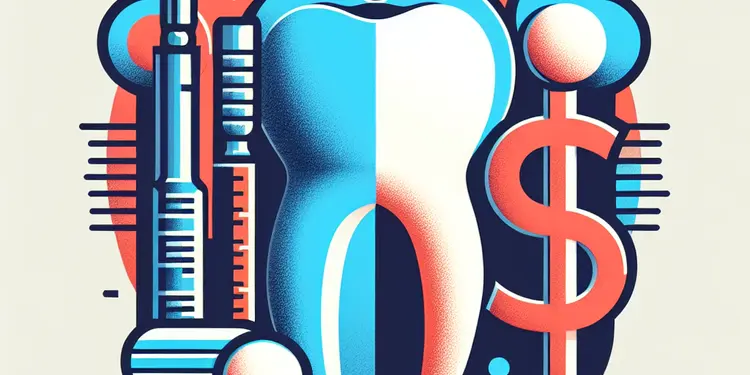
Find Help
More Items From Ergsy search
-
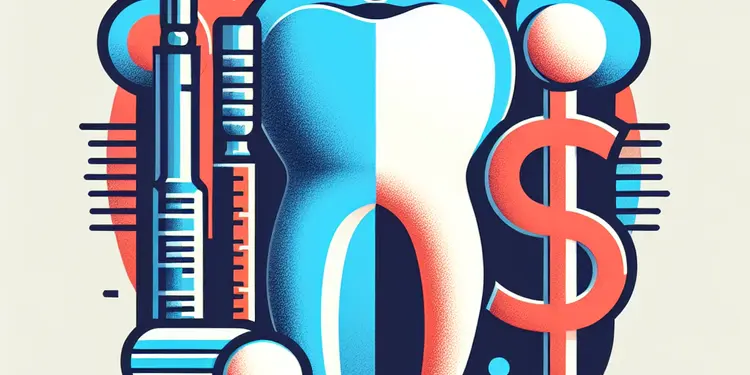
What is the role of dental sealants in preventing tooth decay?
Relevance: 100%
-
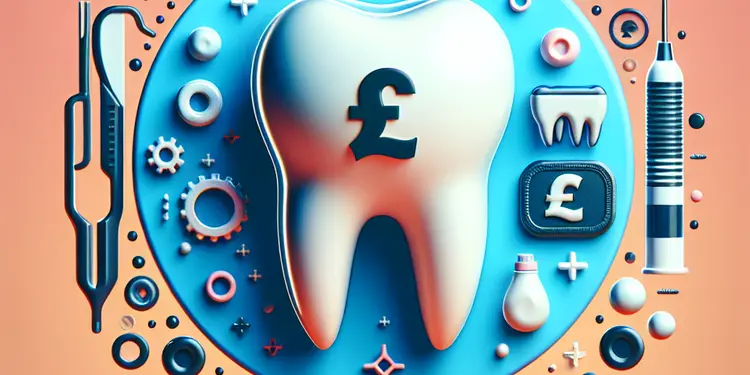
How can I prevent tooth decay?
Relevance: 76%
-
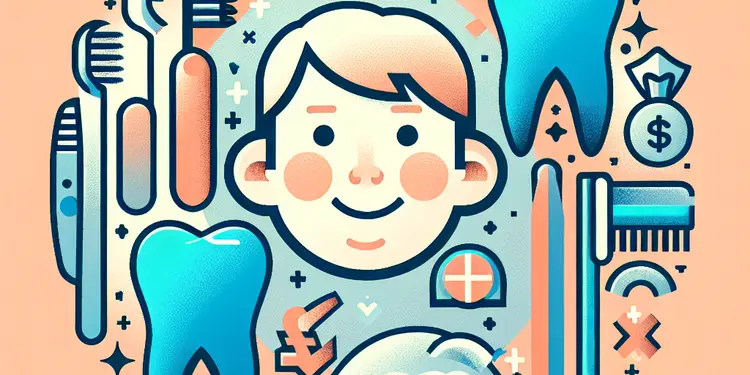
Is tooth decay common in children?
Relevance: 71%
-
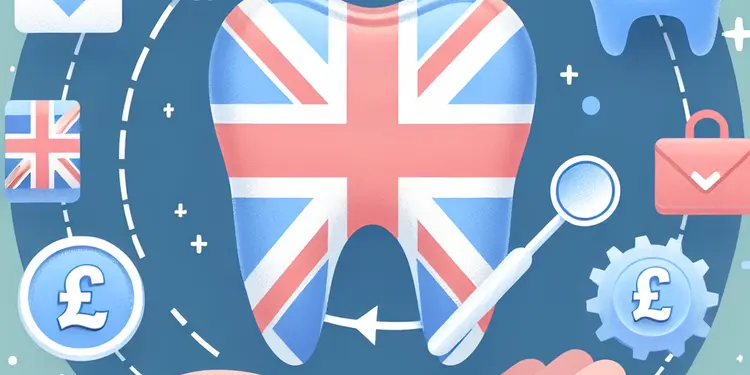
Can tooth decay be reversed?
Relevance: 70%
-
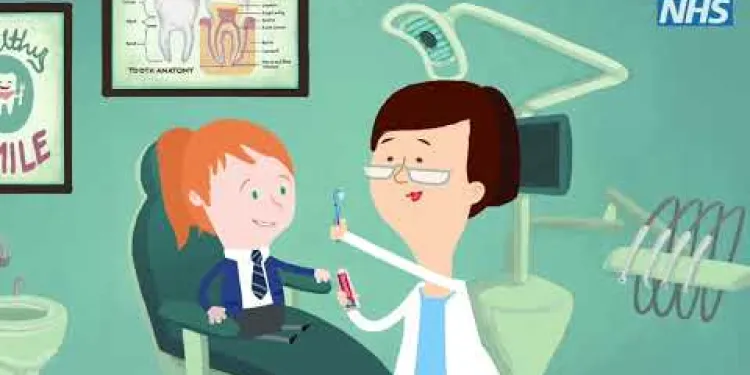
Oral Health Awareness - Tooth Decay
Relevance: 69%
-

How is tooth decay diagnosed?
Relevance: 68%
-
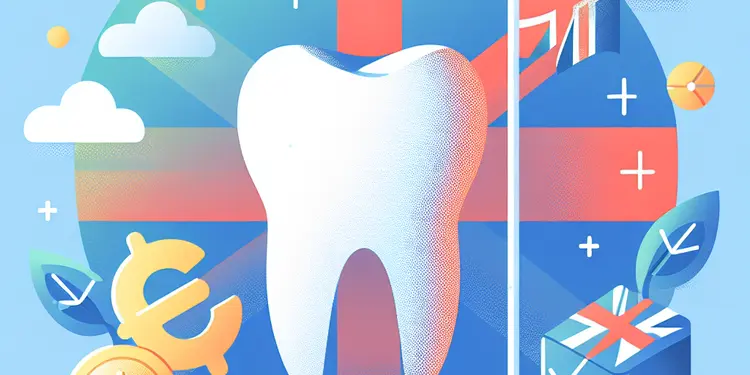
What are the symptoms of tooth decay?
Relevance: 65%
-
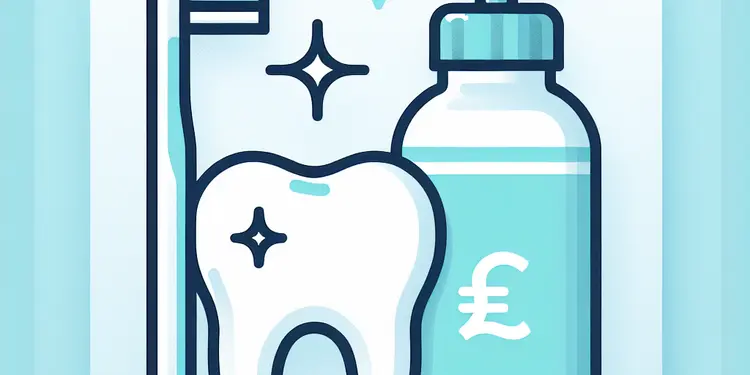
Can using mouthwash prevent tooth decay?
Relevance: 61%
-
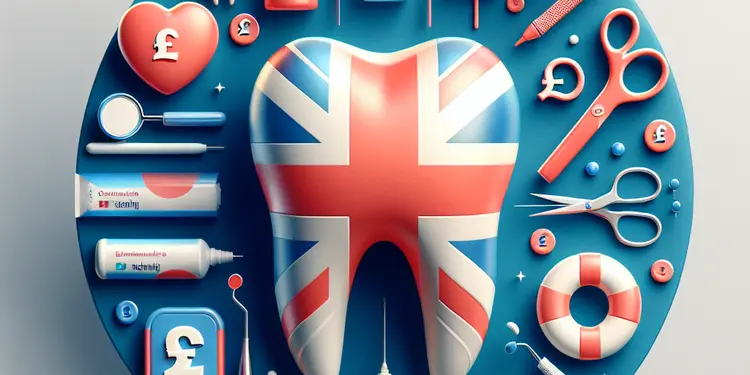
How does fluoride help prevent tooth decay?
Relevance: 59%
-
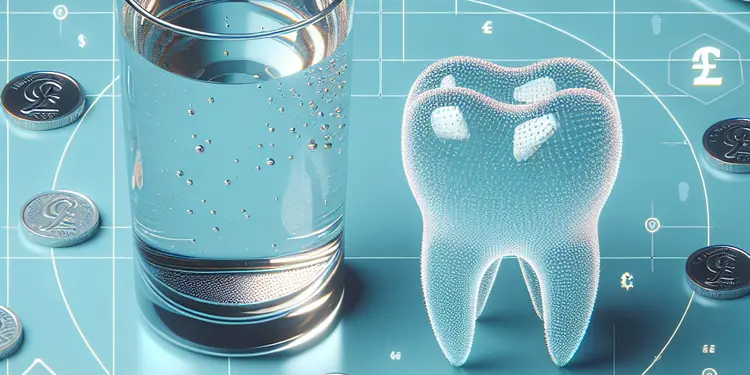
Can drinking water help prevent tooth decay?
Relevance: 57%
-
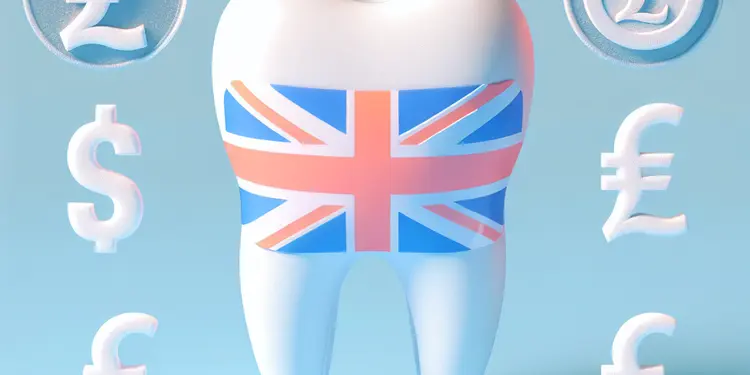
How does diet affect tooth decay?
Relevance: 57%
-
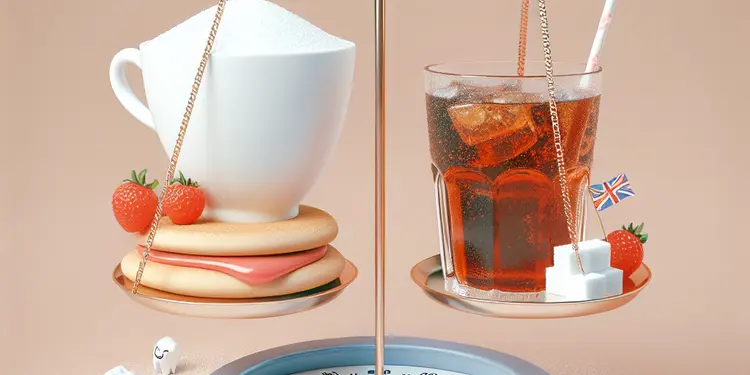
Are sugary drinks worse than sugary foods for causing tooth decay?
Relevance: 51%
-
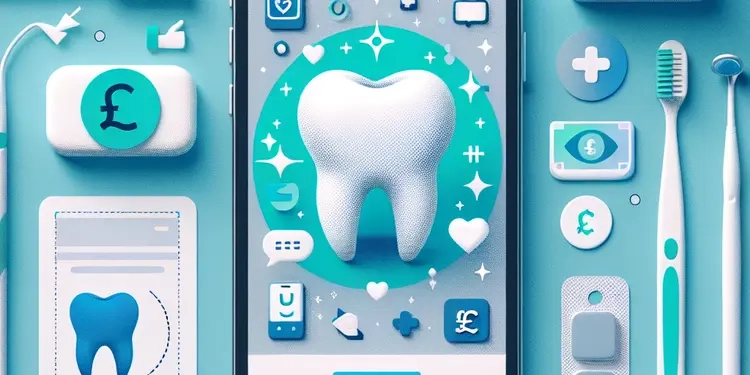
What is tooth decay?
Relevance: 50%
-
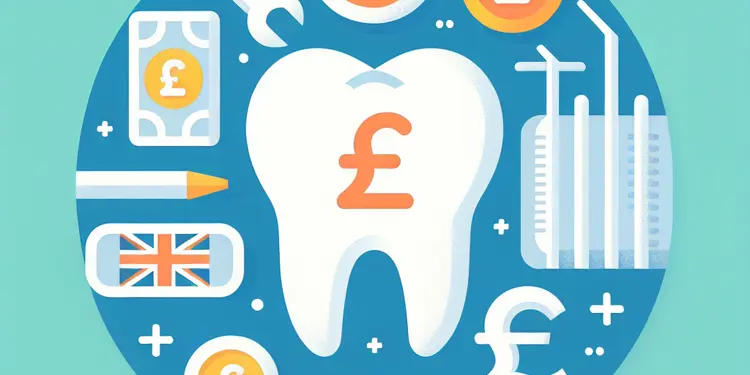
What treatments are available for tooth decay?
Relevance: 45%
-

What treatments are covered by the NHS dental service?
Relevance: 45%
-

Dental Health: Tips for All Ages
Relevance: 43%
-
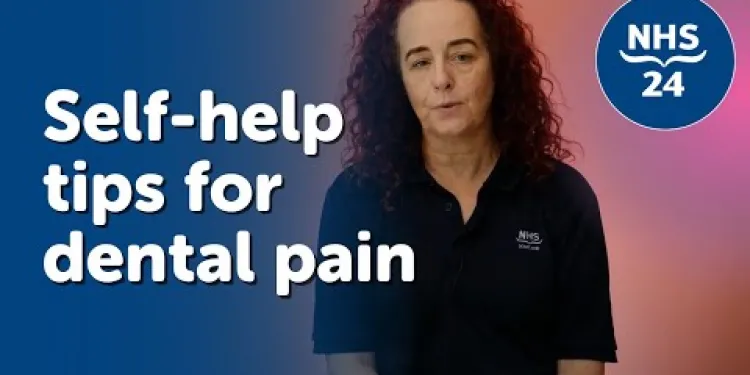
NHS 24 | Self-help tips for dental pain
Relevance: 34%
-
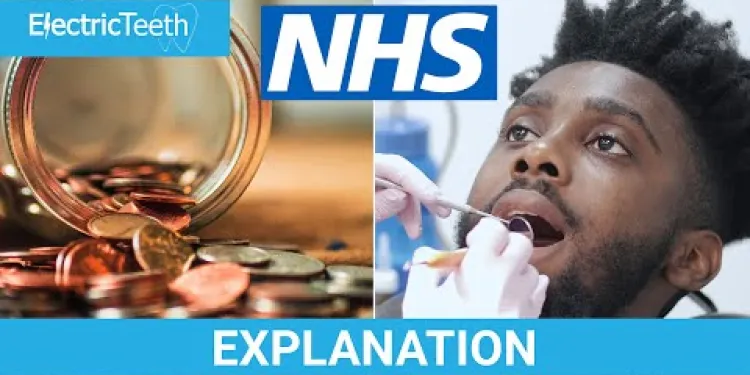
NHS Dental Charges Explained
Relevance: 30%
-
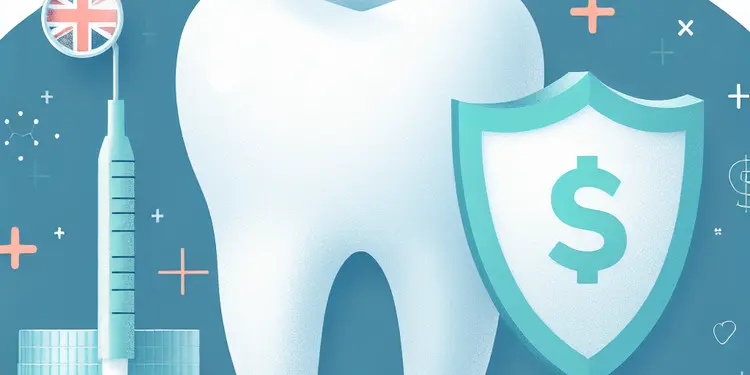
What treatments are covered by the NHS dental services?
Relevance: 29%
-
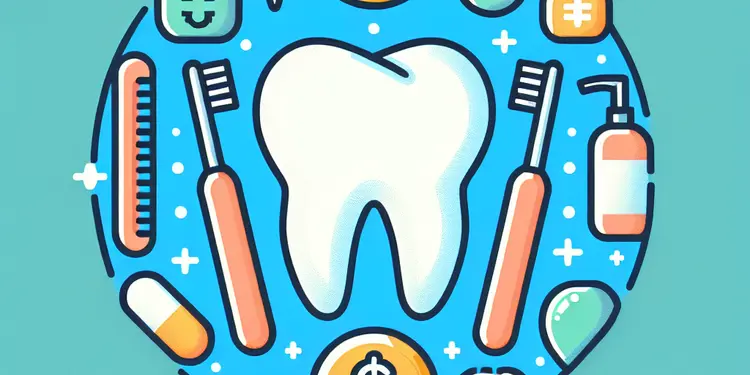
What if I need urgent dental care?
Relevance: 28%
-

Can I get Turkey Teeth if I have existing dental issues?
Relevance: 28%
-
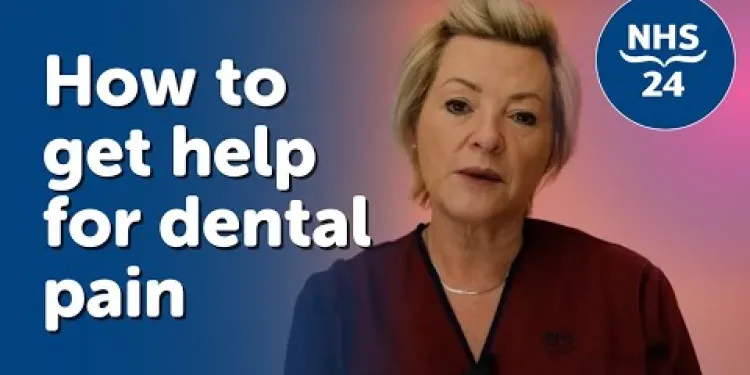
NHS 24 | How to get help for dental pain
Relevance: 26%
-

Can I get an emergency NHS dental appointment?
Relevance: 25%
-

Are there any extra charges for NHS dental treatments?
Relevance: 25%
-
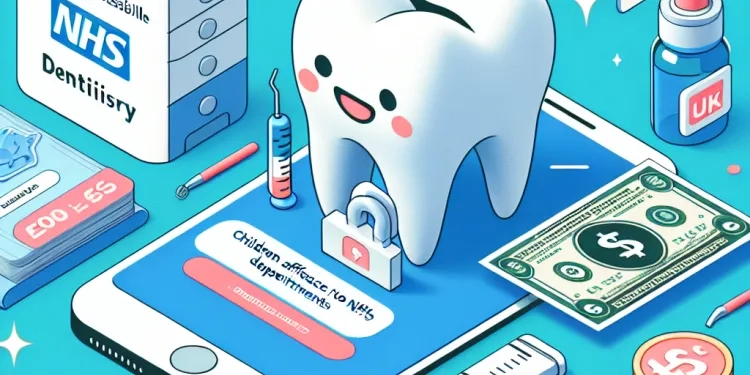
Can children get NHS dentist appointments?
Relevance: 24%
-

Are all dental appointments free on the NHS?
Relevance: 24%
-
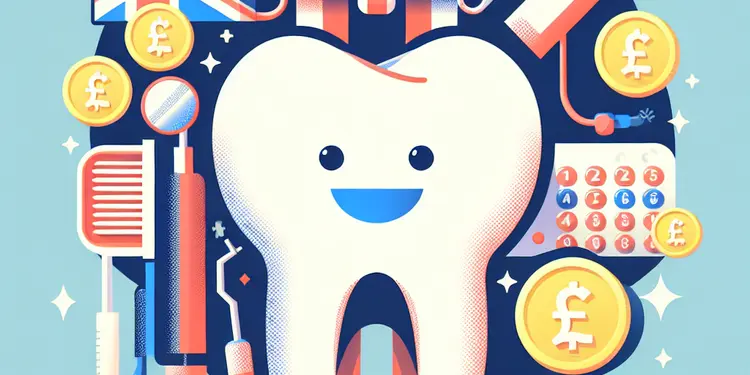
Can children get free NHS dental care?
Relevance: 23%
-
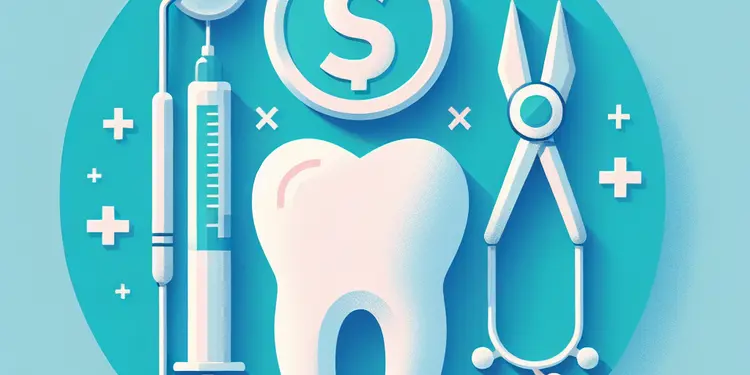
Do I need to be a registered patient to get emergency NHS dental care?
Relevance: 23%
-
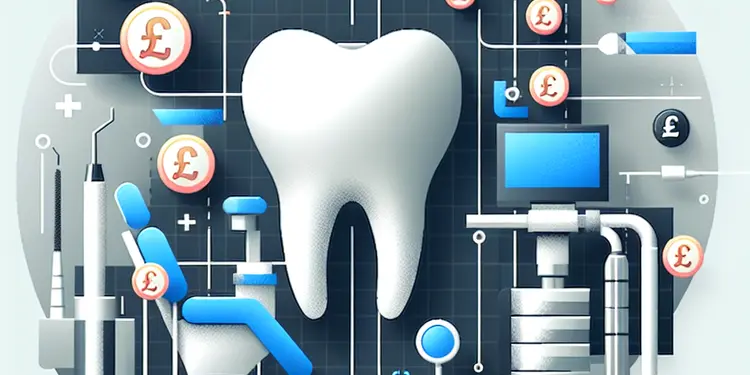
Can I get cosmetic dental treatment on the NHS?
Relevance: 23%
-
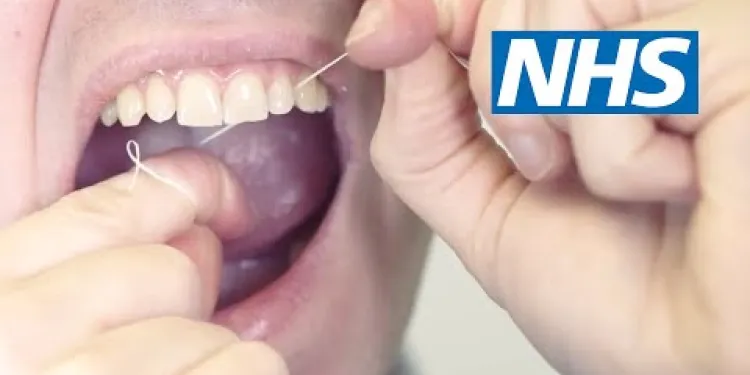
How to floss | NHS
Relevance: 23%
-

Are Turkey Teeth only for aesthetic purposes?
Relevance: 23%
-

Are NHS dental charges different across the UK?
Relevance: 22%
-
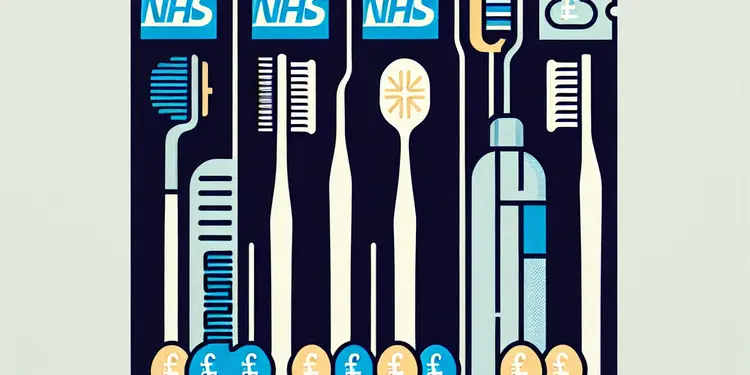
Are there waiting lists for NHS dental treatment?
Relevance: 22%
-
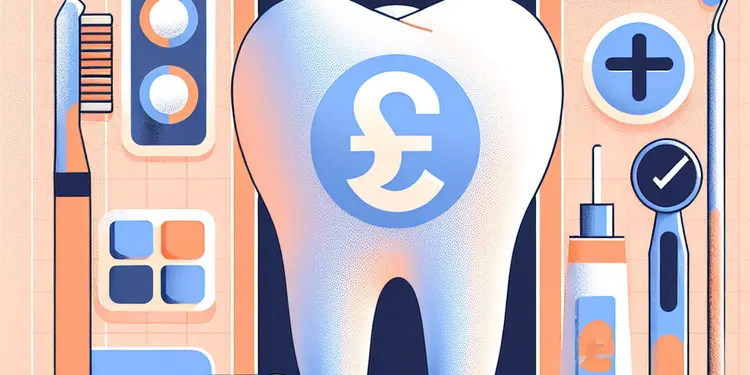
How much will I have to pay for NHS dental treatment?
Relevance: 22%
-
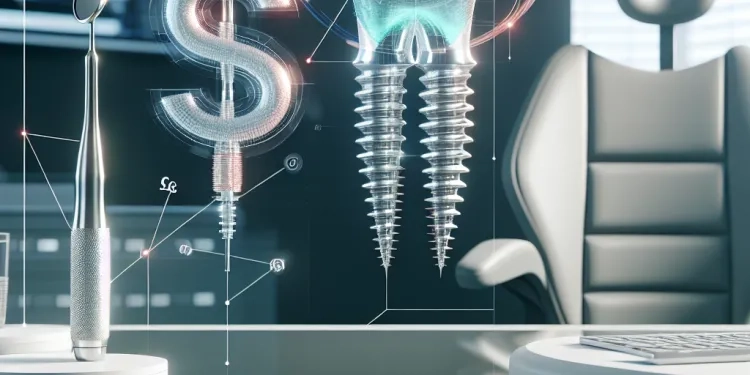
Can I get dental implants on the NHS?
Relevance: 22%
-
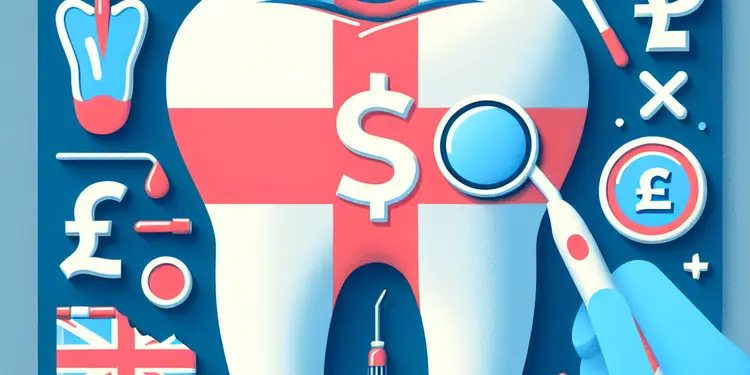
What if I'm not satisfied with my NHS dental treatment?
Relevance: 22%
-
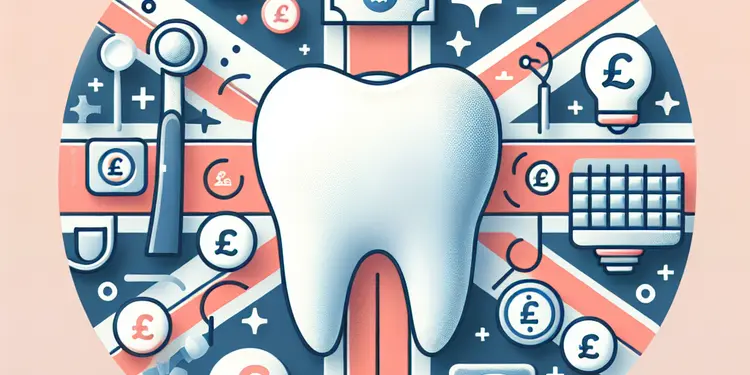
What is the difference between veneers and crowns?
Relevance: 22%
-
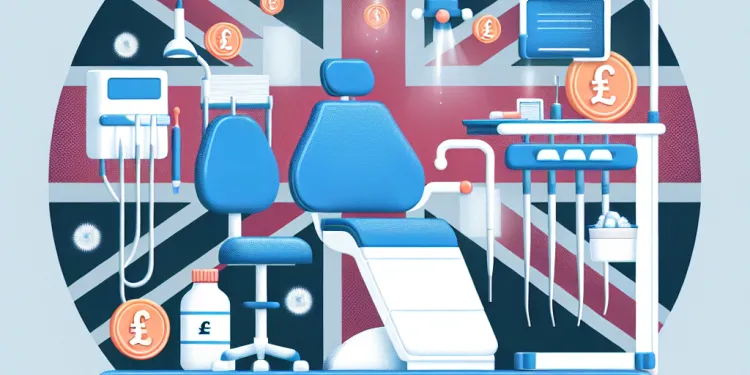
Will Brexit affect my access to NHS dental treatments?
Relevance: 21%
-
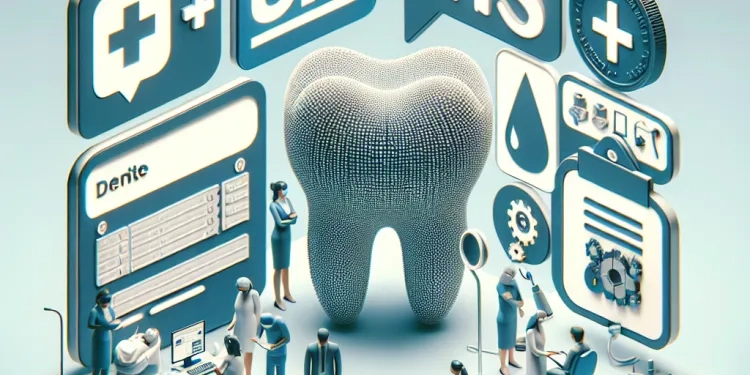
What happens if I miss my NHS dental appointment?
Relevance: 21%
-

What should I bring to my NHS dental appointment?
Relevance: 21%
Introduction to Dental Sealants
Dental sealants are a highly effective preventive treatment in dentistry, designed to protect teeth from decay. They are thin, protective coatings applied to the chewing surfaces of the back teeth, specifically the molars and premolars. These teeth are the most vulnerable to decay due to the pits and grooves on their surfaces where food particles can get trapped, making them difficult to clean even with regular brushing.
How Dental Sealants Work
The primary role of dental sealants is to create a physical barrier that shields the enamel from plaque and acids. Their application is a straightforward and painless process. The teeth are first cleaned and then a special gel is applied to roughen the surface, ensuring the sealant will bond properly. After rinsing off the gel, the sealant is painted onto the tooth enamel and typically hardened with a special light. Once hardened, the sealant becomes a robust shield covering the grooves and pits on the tooth's surface.
Effectiveness of Dental Sealants
Dental sealants are particularly effective in preventing cavities in children and teenagers, who are most at risk of developing decay in their molars. According to research, sealants have been shown to reduce the risk of decay by nearly 80% in these teeth. This is because sealants provide an extra layer of protection during the years when children are learning and establishing their oral hygiene routines. Furthermore, adults with no decay or fillings in their molars may benefit from sealants to preserve their teeth's condition.
Sealants and Oral Health in the UK
In the UK, dental professionals often recommend sealants as a preventive measure in paediatric dentistry. The National Health Service (NHS) recognises the importance of preventing dental caries, and using sealants is a part of a broader strategy to improve oral health and reduce the burden of tooth decay. Sealants are an investment in long-term dental health and may ultimately reduce the need for more invasive and expensive procedures like fillings or crowns.
Conclusion
Dentists consider sealants an integral tool in preventive dentistry because of their effectiveness and efficiency. By providing a barrier against harmful bacteria and acids, they play a crucial role in maintaining a healthy mouth. Ultimately, dental sealants offer a simple yet powerful means of combating tooth decay, benefiting people of all ages. Regular dental check-ups, combined with sealants, fluoride treatments, and good oral hygiene practices, form the cornerstones of a robust oral healthcare routine, ensuring healthier teeth and gums for life.
Introduction to Dental Sealants
Dental sealants help protect teeth from getting holes, which are called cavities. They are like thin covers that go on top of your back teeth, called molars and premolars. These teeth have small gaps where food can get stuck. Sealants help keep food out and teeth clean, even if you brush them.
How Dental Sealants Work
Dental sealants work by making a shield on teeth to stop bad things from causing harm. Putting on a sealant is easy and does not hurt. First, the dentist cleans the teeth. Then, they use a special gel to make the tooth surface rough. This helps the sealant stick. After washing off the gel, the dentist paints the sealant on the tooth and makes it hard with a light. The sealant then acts like a strong cover on the tooth.
Effectiveness of Dental Sealants
Dental sealants are very good at stopping cavities, especially for kids and teens. These groups get cavities easily on their back teeth. Research shows sealants can make cavities 80% less likely to happen. Sealants help protect these teeth while kids learn to brush well. Grown-ups with healthy back teeth can use sealants too, to keep their teeth strong.
Sealants and Oral Health in the UK
In the UK, dentists often suggest sealants for kids to prevent tooth problems. The NHS knows stopping cavities is important, and sealants help make teeth healthier. Using sealants can also save money later because they might stop the need for costly procedures like fillings or crowns.
Conclusion
Dentists think sealants are important to stop tooth decay because they work well and are easy to use. A sealant protects teeth by keeping bad bacteria and acids away. Sealants are a simple way to help people avoid cavities. Regular dentist visits, sealants, fluoride treatments, and brushing teeth help keep teeth and gums healthy for everyone.
Frequently Asked Questions
What are dental sealants?
Dental sealants are thin, protective coatings applied to the chewing surfaces of the back teeth to prevent cavities.
How do dental sealants prevent tooth decay?
Sealants provide a physical barrier that keeps food and bacteria out of the grooves of the teeth where cavities are more likely to develop.
Who can benefit from dental sealants?
While dental sealants are most often applied to children and teenagers, adults with cavity-prone teeth can also benefit.
At what age should my child get dental sealants?
Children should get sealants on their permanent molars as soon as they come in, usually between ages 6 and 12.
Are dental sealants painful to apply?
No, applying dental sealants is a painless and quick process.
How long do dental sealants last?
Dental sealants can last several years, but they need to be checked regularly by a dentist for wear and tear.
Do sealants protect against all types of cavities?
Sealants are most effective at preventing cavities on the chewing surfaces of the back teeth but do not protect against cavities between teeth.
Can sealants be applied over cavities?
Sealants can sometimes be applied over very early cavities to prevent further damage, but most cavities must be treated before sealing.
How effective are dental sealants at preventing cavities?
According to studies, sealants can reduce the risk of decay in molars by nearly 80% in the first two years after application.
What materials are dental sealants made from?
Most dental sealants are made from a plastic material, such as resin.
Can adults get dental sealants?
Yes, adults can get dental sealants if they have surfaces that are at risk for decay and are free of cavities.
How are dental sealants applied?
The teeth are cleaned, an acid solution is applied to help the sealant bond, the teeth are rinsed and dried, and then the sealant is painted on.
Are dental sealants safe?
Yes, dental sealants are considered safe and have been widely used for decades.
Do dental sealants replace fluoride treatments?
No, sealants and fluoride work together. Sealants protect specific surfaces, while fluoride helps protect all tooth surfaces from decay.
What happens if a dental sealant falls off?
If a sealant falls off, it can be reapplied. Regular dental check-ups can ensure sealants remain intact.
Can dental sealants be colored?
Yes, dental sealants can be clear, white, or have a slight tint to match the teeth.
Does insurance cover dental sealants?
Many dental insurance plans cover sealants, particularly for children, but it's important to check with your provider.
Do dental sealants make teeth feel different?
Typically, sealants are very thin and shouldn't change how teeth feel or how one bites down.
Are there alternatives to dental sealants?
Fluoride treatments and maintaining good oral hygiene are important, but there are no exact alternatives to performing dental sealant's specific barrier function.
Can dental sealants be used on primary teeth?
Yes, sealants can also be applied to primary (baby) teeth if there's a high risk of decay.
What are dental sealants?
Dental sealants are a special coating. They help protect your teeth. They stop food and germs from getting in little cracks. This keeps your teeth healthy.
If you find reading hard, you can ask someone to read out loud to you. Or, you can listen to an audio version. Pictures can also help you understand better.
Dental sealants are a thin cover that helps protect back teeth. They stop cavities from forming on the tops of these teeth.
How do sealants stop teeth from getting holes?
Sealants are like a shield for your teeth. They help keep your teeth safe from getting holes or decay. Decay means your tooth is being eaten away.
Sealants are painted on the chewing parts of your back teeth. These back teeth have deep grooves where food and germs can hide. The sealant covers these grooves and makes them smooth. This stops food and germs from sticking there.
With sealants, it's easier to keep teeth clean. Brushing teeth is more simple because there are no grooves for germs to hide. It's like putting a raincoat over your teeth to keep them dry and safe.
If you find reading hard, ask a grown-up to help you read. You can also use tools that read the words aloud to you.
Sealants are like a strong cover for your teeth. They stop food and germs from getting into the little cracks in your teeth. This helps keep your teeth healthy and stops holes (called cavities) from forming.
Who Can Get Help from Dental Sealants?
Dental sealants can help kids and adults. They stop holes in teeth. Dentists put a special coating on the back teeth. This keeps them safe from germs and food.
Here's who can get help:
- Kids with new teeth coming in
- Adults with no fillings or cavities in back teeth
Ask your dentist if sealants are good for you. They can check your teeth and tell you what is best.
To help understand, you can:
- Look at pictures of sealants
- Watch videos about how sealants work
Dental sealants are usually used for children and teenagers. But adults who get lots of cavities can use them too.
When should my child get dental sealants?
Kids should get special coatings on their big back teeth when they grow in. This usually happens when they are between 6 and 12 years old.
Do dental sealants hurt when put on?
Dental sealants do not hurt. They are put on teeth to keep them safe from getting holes called cavities. It is quick and easy to do.
If you feel worried, you can:
- Ask the dentist to explain each step.
- Bring a favorite toy or listen to music for comfort.
- Take deep breaths to help you stay calm.
No, getting dental sealants does not hurt. It is a fast and easy process.
How long do dental sealants last?
Dental sealants are protective coatings put on teeth to stop cavities. They can last a long time, often many years. But they might wear off or get damaged. Dentists check them during visits to make sure they still work well.
Here are some tools and tips that can help:
- Ask a dentist: They can tell you how your sealants are doing.
- Regular check-ups: Visit the dentist regularly to check your sealants.
- Good brushing habits: Brush teeth twice a day to help sealants last longer.
Dental sealants are like a special coating for your teeth. They can last for a long time, but it's important to visit the dentist often. The dentist will make sure they are still working well and not worn out.
If you find reading hard, you can try using audiobooks or apps that read text out loud. You can also ask someone you trust to read with you and help you understand.
Do sealants stop all kinds of tooth holes?
Sealants help protect teeth from getting holes called cavities. But they do not stop all kinds of cavities. Sealants are like a shield. They cover the tops of back teeth to keep food and germs out. But they can't protect the sides or in between teeth.
Here are some tips to keep teeth healthy:
- Brush your teeth two times every day.
- Use toothpaste with fluoride.
- Floss every day to clean between teeth.
- Visit the dentist regularly.
- Eat healthy foods.
You can use pictures and videos to help understand how sealants work. Ask your dentist if you have any questions about sealants.
Sealants work best to stop holes from forming on the top parts of the back teeth where you chew. But they do not help stop holes between teeth.
Can you put sealants on teeth with holes?
Sometimes, special coatings called sealants can be used on teeth to help stop tiny holes, called cavities, from getting bigger. But, most of the time, cavities need to be fixed by a dentist before they can be sealed.
Do dental sealants stop cavities?
Dental sealants are like a shield for your teeth. They keep food and germs away, so you don't get cavities. Dentists put the sealants on your back teeth, where cavities happen the most.
Sealants can be very good at stopping cavities. They work well for kids and grown-ups too!
If you want to understand more about dental sealants, you can try asking a dentist or looking at pictures and videos online.
Studies say that sealants can help stop tooth decay in back teeth. They work really well for the first 2 years. They can stop almost 80 out of 100 holes from happening.
What are dental sealants made of?
Dental sealants are made from special plastic. This plastic is safe and helps protect your teeth. Dentists use it to keep your teeth strong and healthy.
Tips to help understand more:
- Ask your dentist to show you a dental sealant.
- Watch a video about dental sealants with a parent or teacher.
- Use pictures to help understand new words.
Most dental sealants are made from a kind of plastic called resin.
Can grown-ups have tooth sealants?
Yes, they can! Tooth sealants are like a shield for your teeth. They help stop food and germs from getting stuck in your teeth. This can stop cavities.
Some grown-ups choose to get sealants to keep their teeth healthy. Ask your dentist if sealants are a good idea for you.
Here are some tips to help you:
- Talk to your dentist about sealants.
- Use pictures to understand how sealants work.
- Watch a short video about sealants if you're unsure.
Yes, grown-ups can get dental sealants if their teeth might get holes and they don't have any cavities.
How do dentists put on dental sealants?
Dentists use special stuff called dental sealants to protect your teeth.
Here is how they do it:
- The dentist cleans your teeth really well.
- They make your teeth dry with air or a small brush.
- The dentist puts a special gel on your teeth. This helps the sealant stick.
- They wash off the gel and dry your teeth again.
- The dentist puts the sealant on your teeth. It's like painting your teeth.
- A blue light is used to make the sealant hard. It is quick and doesn’t hurt.
Now your teeth are safe!
If reading is hard, ask someone to read it out loud to you. You can also use a tool that reads the text to you.
First, we clean your teeth. Then, we use a special liquid to help the sealant stick better. After that, we wash and dry your teeth. Finally, we paint the sealant on your teeth.
Is it safe to use dental sealants?
Yes, dental sealants are safe. People have been using them for a long time.
Do Dental Sealants Take the Place of Fluoride Treatments?
Dental sealants and fluoride treatments are different. Here’s how:
- Dental Sealants: These are thin coatings that a dentist puts on the teeth. They help stop cavities.
- Fluoride Treatments: Fluoride makes teeth strong and helps fight cavities. These can come as gels, foams, or varnishes that a dentist applies.
Both help protect teeth, but they work differently. Sealants cover teeth to keep germs and food away. Fluoride makes teeth stronger from the inside. It’s good to have a dentist help you decide what you need.
Using pictures or videos can be helpful. Ask a dentist for more information if needed.
No, sealants and fluoride are friends that work together. Sealants cover and protect certain parts of your teeth. Fluoride helps keep all parts of your teeth strong and safe from getting holes.
What if a tooth cover falls off?
If your tooth cover falls off, don't worry.
- Tell a grown-up. They can help you see the dentist.
- A dentist can put on a new cover to protect your tooth.
Remember, keeping your teeth clean and visiting the dentist are good ways to protect your teeth.
Tools that can help:
- Ask someone to read with you.
- Watch a video about taking care of teeth.
If the sealant comes off, the dentist can put it back on. Going to the dentist regularly helps make sure sealants stay in place.
Can dental sealants have colors?
Dental sealants are a type of protective coating that dentists put on teeth. This helps prevent cavities.
Some dental sealants can have color. The color helps the dentist see where the sealant is applied. It makes it easier to check if the sealant is still there when you visit the dentist again.
If you have trouble reading or understanding, you can ask someone to explain it to you. You can also look at pictures or use videos to help understand more about dental sealants.
Yes, dental sealants can be see-through, white, or have a little color to match your teeth.
Does insurance pay for dental sealants?
Dental sealants are a coating for your teeth to protect them. They help stop cavities. Check with your insurance company to see if they pay for sealants. Ask a parent or caregiver to help you call them. You can also ask your dentist for advice.
Lots of dental insurance plans pay for sealants. Sealants are a special kind of covering for teeth. Insurance often covers them for kids. But, you should ask your insurance company to make sure they pay for it.
Do sealants change how teeth feel?
Sealants are very thin. They should not change how your teeth feel or how you bite down.
Other Options Instead of Dental Sealants?
Fluoride treatments and brushing your teeth are important. But, there is nothing else that works exactly like dental sealants. Dental sealants protect your teeth.
Can sealants be put on baby teeth?
Sealants are a special coating for teeth. They stop germs. Baby teeth need protection too. Dentists can use sealants for baby teeth. Parents can ask the dentist about sealants for their child.
Tools like pictures or videos can help explain this.
Yes, we can put sealants on baby teeth, too. This helps stop them from getting holes.
Useful Links
This website offers general information and is not a substitute for professional advice.
Always seek guidance from qualified professionals.
If you have any medical concerns or need urgent help, contact a healthcare professional or emergency services immediately.
Some of this content was generated with AI assistance. We’ve done our best to keep it accurate, helpful, and human-friendly.
- Ergsy carfully checks the information in the videos we provide here.
- Videos shown by Youtube after a video has completed, have NOT been reviewed by ERGSY.
- To view, click the arrow in centre of video.
- Most of the videos you find here will have subtitles and/or closed captions available.
- You may need to turn these on, and choose your preferred language.
- Go to the video you'd like to watch.
- If closed captions (CC) are available, settings will be visible on the bottom right of the video player.
- To turn on Captions, click settings .
- To turn off Captions, click settings again.
More Items From Ergsy search
-

What is the role of dental sealants in preventing tooth decay?
Relevance: 100%
-

How can I prevent tooth decay?
Relevance: 76%
-

Is tooth decay common in children?
Relevance: 71%
-

Can tooth decay be reversed?
Relevance: 70%
-

Oral Health Awareness - Tooth Decay
Relevance: 69%
-

How is tooth decay diagnosed?
Relevance: 68%
-

What are the symptoms of tooth decay?
Relevance: 65%
-

Can using mouthwash prevent tooth decay?
Relevance: 61%
-

How does fluoride help prevent tooth decay?
Relevance: 59%
-

Can drinking water help prevent tooth decay?
Relevance: 57%
-

How does diet affect tooth decay?
Relevance: 57%
-

Are sugary drinks worse than sugary foods for causing tooth decay?
Relevance: 51%
-

What is tooth decay?
Relevance: 50%
-

What treatments are available for tooth decay?
Relevance: 45%
-

What treatments are covered by the NHS dental service?
Relevance: 45%
-

Dental Health: Tips for All Ages
Relevance: 43%
-

NHS 24 | Self-help tips for dental pain
Relevance: 34%
-

NHS Dental Charges Explained
Relevance: 30%
-

What treatments are covered by the NHS dental services?
Relevance: 29%
-

What if I need urgent dental care?
Relevance: 28%
-

Can I get Turkey Teeth if I have existing dental issues?
Relevance: 28%
-

NHS 24 | How to get help for dental pain
Relevance: 26%
-

Can I get an emergency NHS dental appointment?
Relevance: 25%
-

Are there any extra charges for NHS dental treatments?
Relevance: 25%
-

Can children get NHS dentist appointments?
Relevance: 24%
-

Are all dental appointments free on the NHS?
Relevance: 24%
-

Can children get free NHS dental care?
Relevance: 23%
-

Do I need to be a registered patient to get emergency NHS dental care?
Relevance: 23%
-

Can I get cosmetic dental treatment on the NHS?
Relevance: 23%
-

How to floss | NHS
Relevance: 23%
-

Are Turkey Teeth only for aesthetic purposes?
Relevance: 23%
-

Are NHS dental charges different across the UK?
Relevance: 22%
-

Are there waiting lists for NHS dental treatment?
Relevance: 22%
-

How much will I have to pay for NHS dental treatment?
Relevance: 22%
-

Can I get dental implants on the NHS?
Relevance: 22%
-

What if I'm not satisfied with my NHS dental treatment?
Relevance: 22%
-

What is the difference between veneers and crowns?
Relevance: 22%
-

Will Brexit affect my access to NHS dental treatments?
Relevance: 21%
-

What happens if I miss my NHS dental appointment?
Relevance: 21%
-

What should I bring to my NHS dental appointment?
Relevance: 21%


